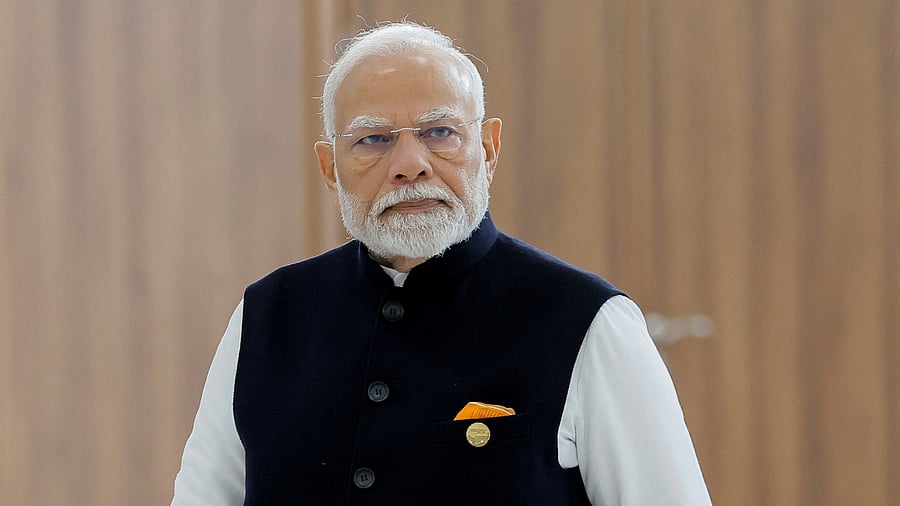
Narendra Modi
Credit: Reuters Photo
New Delhi: Bills seeking to open up the nuclear sector to private players, introduce reforms in higher education and align Chandigarh's administration with other union territories without legislatures are among ten new draft legislations the Narendra Modi government is planning to bring in Parliament during the upcoming Winter Session.
The other Bills are linked to reforms in the insurance sector, securities and easing land acquisition for highways among others. The government also intends to pass the Jan Vishwas (Amendment of Provisions) Bill 2025 and the Insolvency and Bankruptcy Code (Amendment) Bill 2025, which are being examined by Joint Committees of Parliament, Parliament Bulletins said.
One of the major Bills listed for this session, which starts on December 1 and ends on December 19, is 'The Atomic Energy Bill 2025' that seeks to "govern the use and regulation" of atomic energy in the country. Details of the Bill are not yet in public domain but it is expected to provide provisions for opening up the nuclear power generation to the private sector.
Another Bill high on agenda is The Higher Education Commission of India Bill 2025 aims to set up a Commission to facilitate the Universities and other higher educational institutions to become independent self-governing institutions and to promote excellence through a robust and transparent system of accreditation and autonomy.
It is also expected to empower higher educational institutions to achieve excellence in teaching-learning, research and innovation, through coordination and determination of standards in institutions for higher education or research and scientific and technical institutions.
The government is also planning to come up with The Constitution (131st Amendment) Bill 2025 to include the union territory of Chandigarh in Article 240 of the Constitution in alignment with other union territories without legislatures Andaman and Nicobar Islands, Lakshadweep, Dadra and Nagar Haveli and Daman and Diu as well as Puducherry when its Assembly is dissolved or suspended.
While the content and nature of the Bill is not known yet, there is speculation that it may dilute Punjab's hold over the union territory where its Governor doubles up as the UT Administrator since 1984. Article 240 empowers the President to make regulations for three union territories without legislatures and Puducherry when its Assembly is dissolved and when promulgated, it will have the same effect as an Act of Parliament.
To ensure faster and transparent land acquisition for National Highways, the government intends to amend the existing National Highways Act while certain amendments are being made to the Companies Act 2013 and LLP Act 2008 through The Corporate Laws (Amendment) Bill 2025 to facilitate Ease of Doing Business and remove gaps identified in the Report of the Company Law Committee 2022.
To frame a single law to deal with the securities market, the government intends to consolidate the provisions of the SEBI Act 1992, Depositories Act 1996 and Securities Contracts (Regulation) Act 1956 into a rationalised single Securities Markets Code. To deepen penetration, accelerate growth and development of the insurance sector and enhance ease of doing business, The Insurance Laws (Amendment) Bill is being planned. The Arbitration and Conciliation (Amendment) Bill 2025 is another Bill on agenda.
